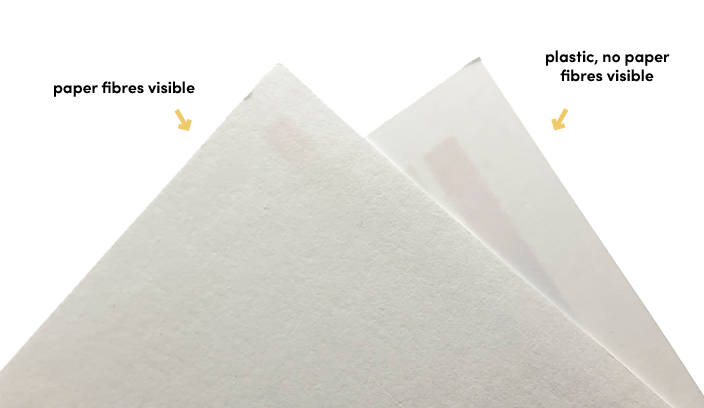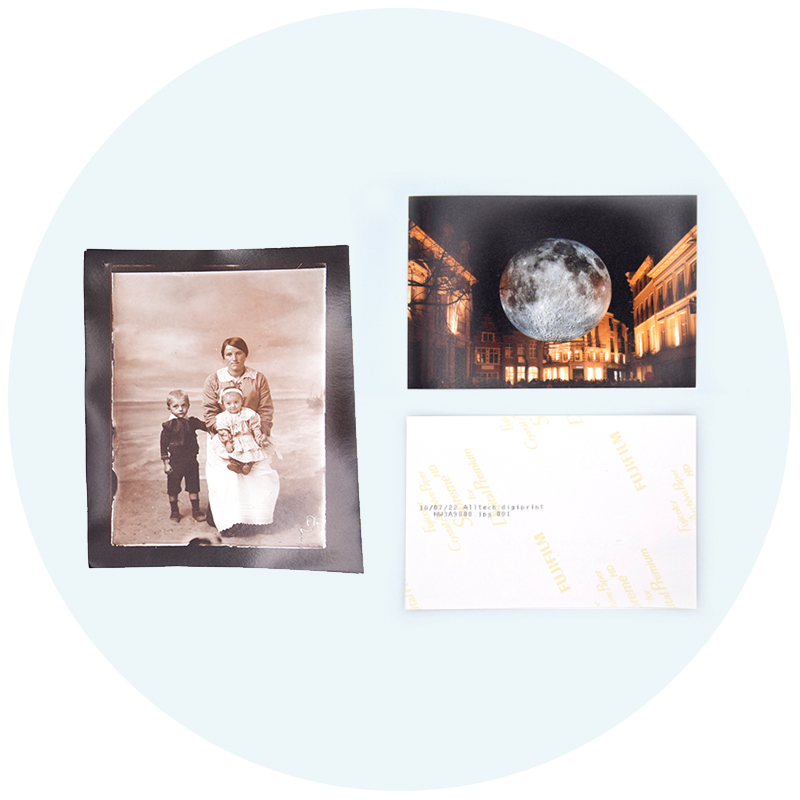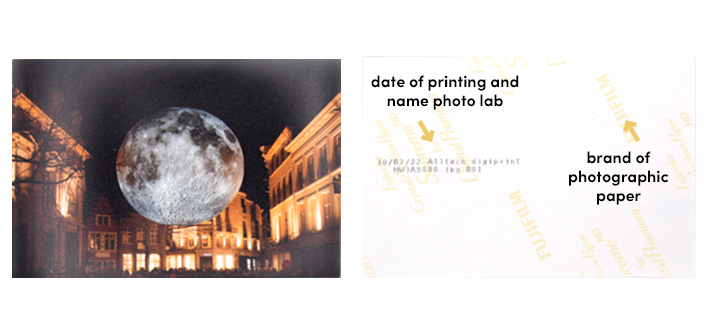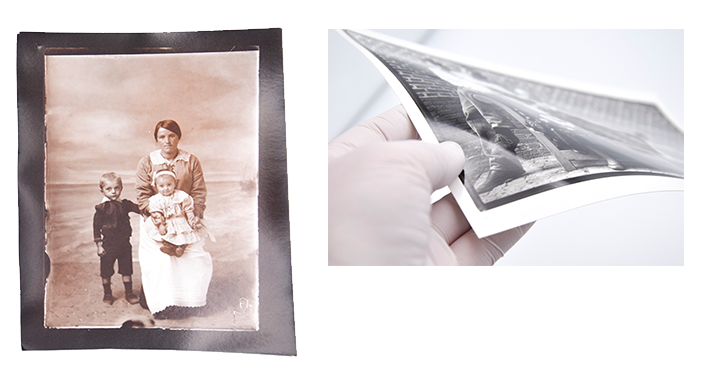Read more
![]()
RC paper
RC paper has been used for printing photographs since the 1970s. RC stands for ‘resin-coated’, which means that the photographic paper is between layers of polyethylene. Photos on this type of photographic paper can come in many different sizes, from 10 x 15 cm up to 40.6 x 50.8 cm. The paper feels a bit like plastic, and is used for both colour and black-and-white prints.
Baryte paper
Baryte paper existed as early as 1885, and its formula has been continually improved since. The Baryte layer that is applied to the paper fibre improves the contrast in photos, so photographic prints on Baryte paper generally have more depth than prints on RC paper. Baryte paper is also usually a bit thicker.
The trick with the magnifying glass
Not sure what type of paper you have? If you look closely at Baryte paper through a magnifying glass, you can see the paper fibre on the rear of the photographic print. Photos on RC paper are generally more common, but Baryte paper is often used for artistic photos.

Did you know …
… photos can be printed using both analogue and digital techniques? It is, however, very difficult to distinguish an analogue print from a digital one. The type of paper used (resin-coated or Baryte paper), and whether it is a black-and-white or colour photo, is particularly important for knowing how best to preserve them.
Heat stress
The plastic resin layer on RC paper means that photographic prints are not very good at withstanding heat. Stains or cracks can sometimes appear on the polyethylene layer after a while, so you should be extra careful with your photos or digitise them.
Read our storage tips here.



